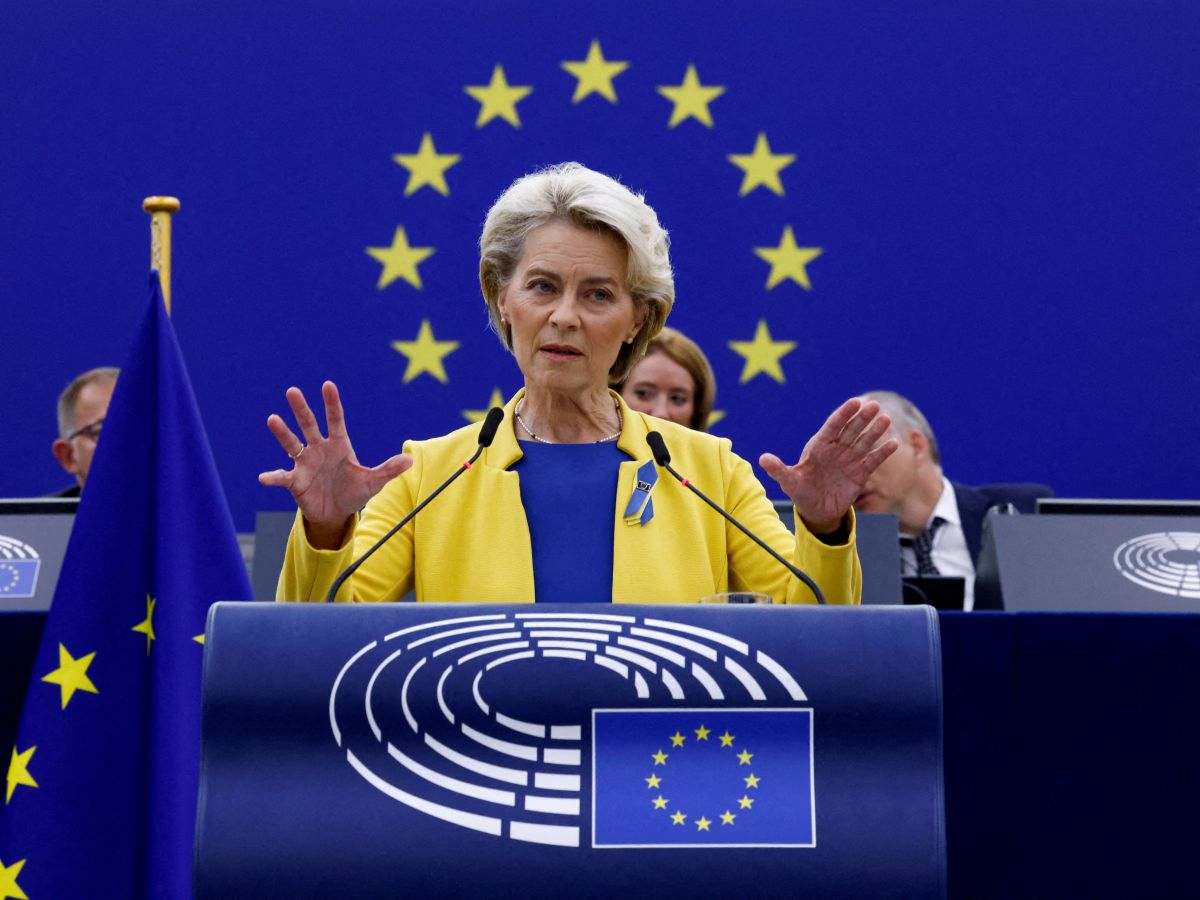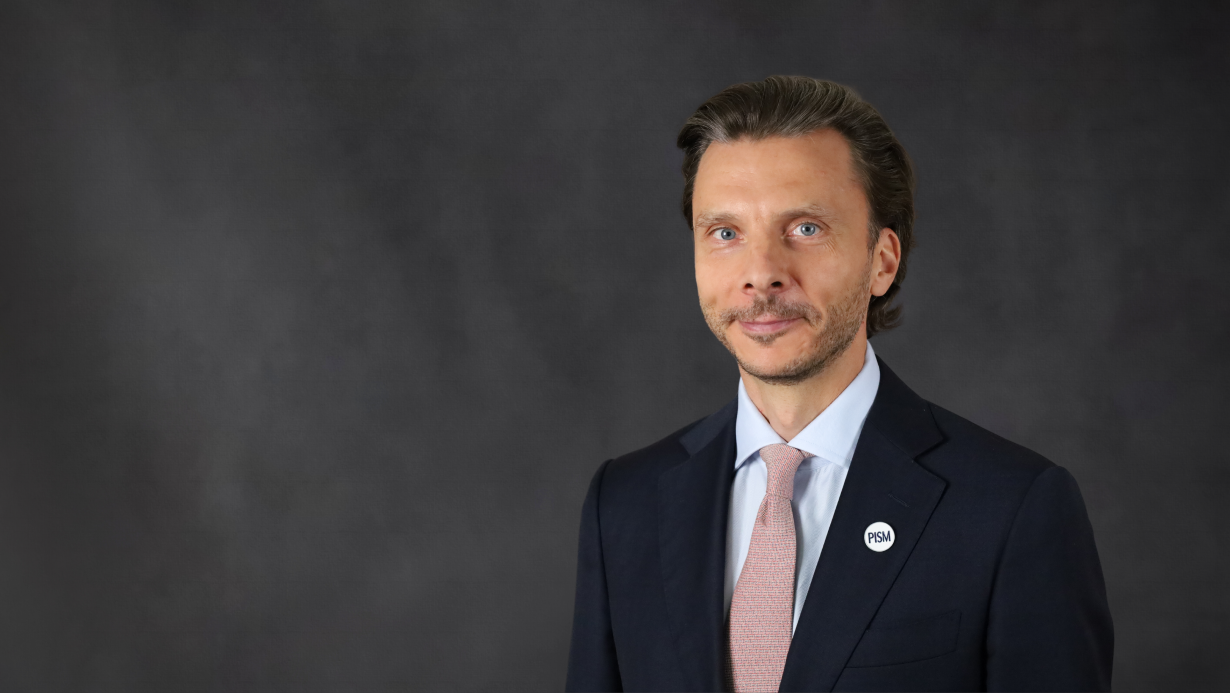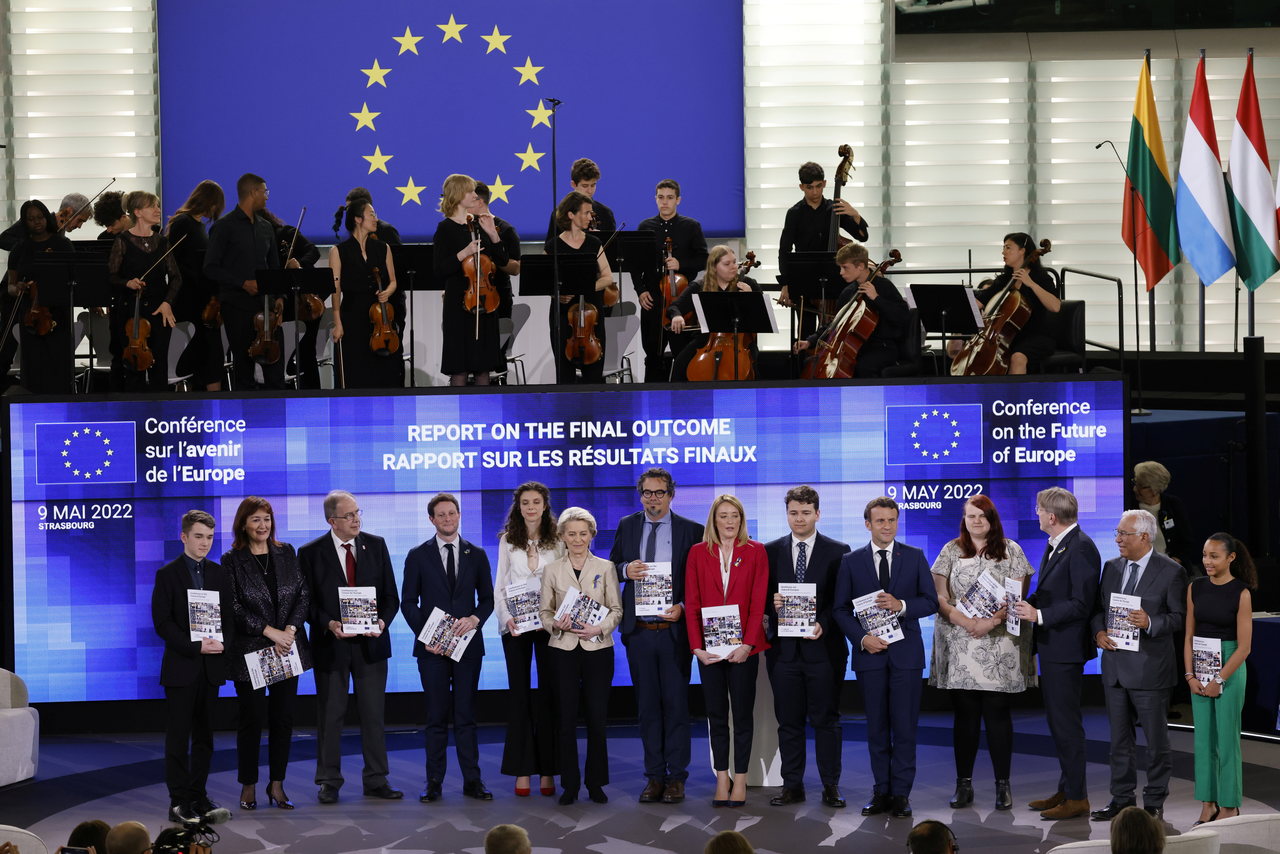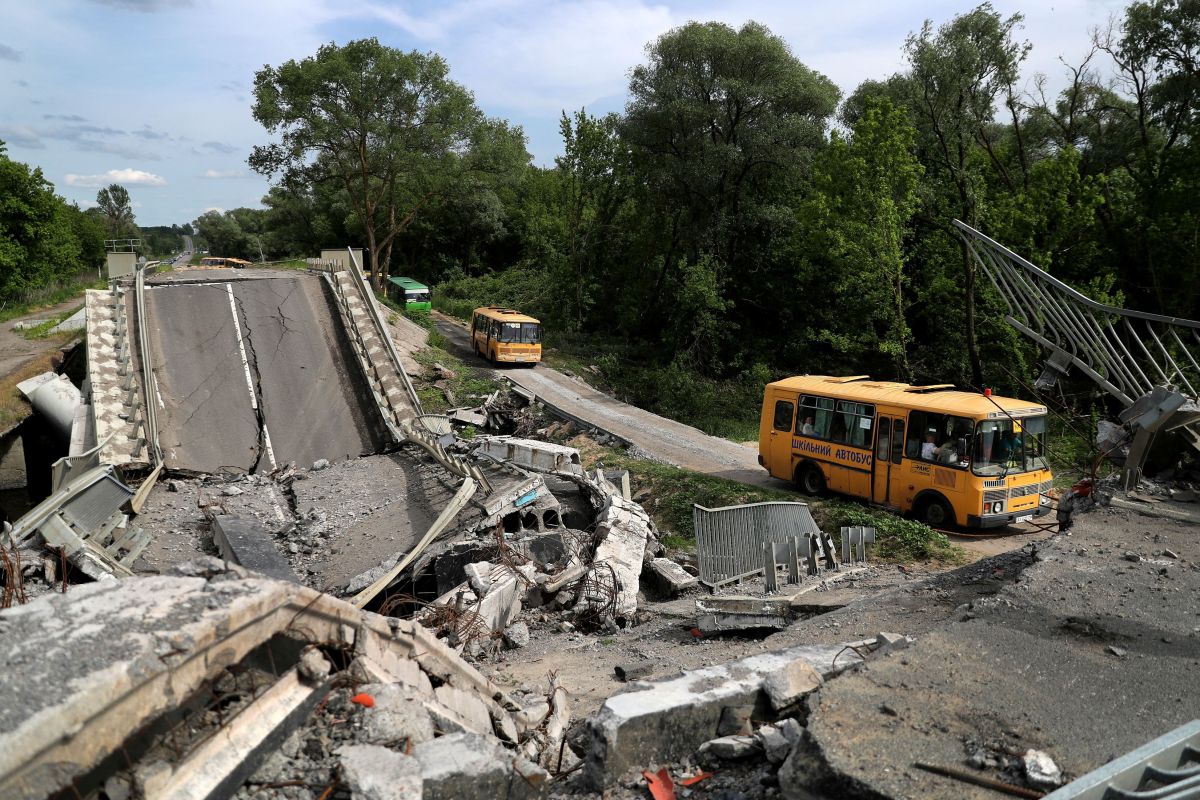In Defence of the Union's Values and Economy - State of the Union Address
In the annual address on the state of the Union, European Commission (EC) President Ursula von der Leyen announced the continuation of support for Ukraine. Though the EC strives to minimise the economic fallout of the Russian aggression, it complicates the implementation of the Union’s projects and is likely to worsen citizens’ living standards.
 YVES HERMAN/ Reuters/ FORUM
YVES HERMAN/ Reuters/ FORUM
How is the EU supporting Ukraine?
The president emphasised the effectiveness of EU sanctions, which have significantly impaired the Russian economy, and added that they will be maintained. She depicted the current situation as a struggle between autocracy and democracy in which Ukraine and Europe will prevail. Financial assistance to Ukraine provided in various forms by the EU, the Member States, and EU development banks amounts to €19 billion. With Ukraine connected to the EU electricity grid in March, it can export energy to Europe. The EC plans to include Ukraine in the EU mobile roaming area. The Commission also will work on facilitating access to the single market for Ukrainian companies.
What measures is the EC considering to tackle the energy crisis?
The Commission wants to introduce a levy that will apply to firms that import and produce energy. Some of them have seen their profits surge due to the turmoil on the energy markets. The EC counts on getting €140 billion this way and intends to use the proceeds to support households and firms hardest hit by the spikes in energy prices. In the longer term, the EC will propose a thorough reform of the energy market. It could entail decoupling the price of electricity from that of gas in order to make renewable energy cheaper. Von der Leyen did not mention the widely debated issue of capping the price of imported gas. She stressed, however, that the EC will negotiate prices with allied countries (e.g., Norway).
How is the war impacting key EU projects and contentious issues?
The Commission wants to proceed with an ambitious climate policy and accelerate the roll-out of renewables and the use of hydrogen instead of gas. However, development of infrastructure necessary to diversify imports and facilitate transmission of resources between the Member States may reduce the funds available for green investments. In the meantime, states are trying to persuade the EC to relax some climate- and environment-related requirements, for instance those pertaining to agriculture. Inflation and an economic slowdown will complicate the debate on reforming EU fiscal rules. Even though the Member States managed to welcome millions of Ukrainian refugees, a compromise on asylum and migration policy does not seem any closer. The challenging economic situation is hardly conducive to a debate on institutional reforms, though the Commission president called upon the Member States to establish a convention whose task would be to prepare a proposal for changing the EU treaties.
How should the EU’s external policy evolve according to the Commission president?
Given the escalating conflict with Russia, which enjoys the backing of other authoritarian powers, namely China, von der Leyen wants the EU to strengthen cooperation with democratic states. In view of the obvious negative consequences of economic dependence on authoritarian regimes, the Commission president advocated deepening commercial ties with allies and countries considered more dependable. Diversification of imports of raw materials crucial for the green and digital transitions—above all, rare earth elements—is a priority. Currently, the vast majority of these resources is extracted and processed in China. Von der Leyen also said the EU will maintain its ambition to improve relations with countries in Africa, Asia, and Latin America, which have attempted to remain neutral in the face of the growing confrontation between democracies and autocracies. By providing financial assistance to a variety of infrastructure projects in those regions, the Union wants to check the expansion of Chinese influence.
What do the Commission’s plans mean for Poland?
Von der Leyen emphasised the accomplishments of Polish citizens in providing shelter to Ukrainian refugees. She also stressed that large Member States and EU decision-makers were wrong to ignore warnings about Russia’s intentions expressed by Poland and the Baltic states. This statement reflects propitious circumstances for Polish recommendations regarding support for Ukraine and the shape of the EU’s eastern policy. Meanwhile, the upcoming reform of the energy market could provide an opportunity to promote Polish proposals for modifying the system for auctioning greenhouse gas emission permits (ETS). The rule of law will remain a divisive issue. Leaders of the major political groups in the European Parliament urged the Commission to maintain a principled position on the subject. Consequently, it seems improbable that the EC will unblock money from the recovery fund without further reforms of the judiciary in Poland.





_sm.jpg)